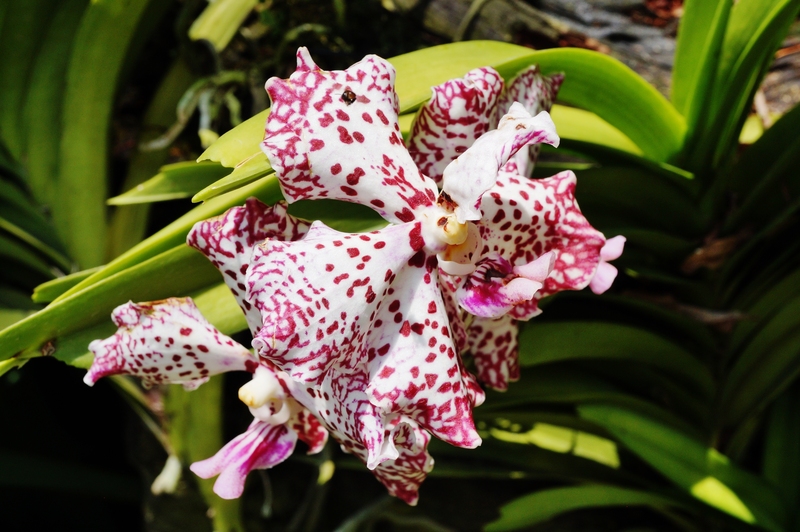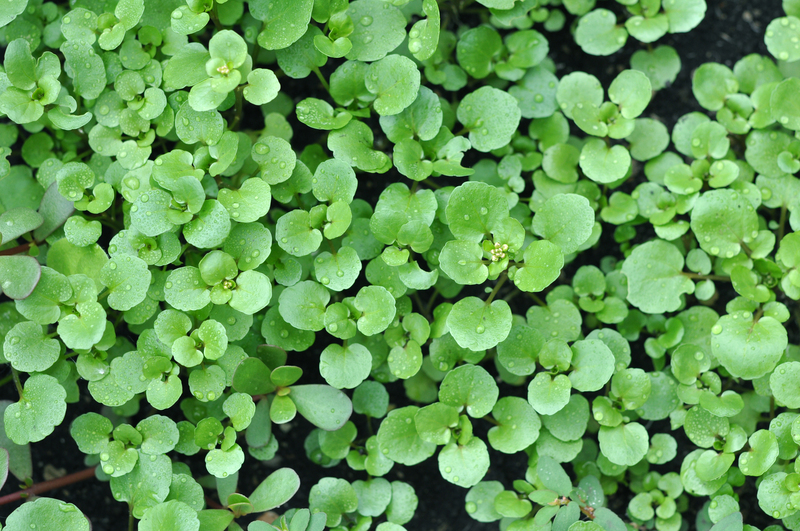Mastering Weed Management: Top 3 Strategies
Posted on 22/06/2025
Mastering Weed Management: Top 3 Strategies for Effective Control
Weed management is a critical aspect of successful gardening, farming, and landscaping. Uncontrolled weed growth not only poses a direct threat to crop yields and plant health, but also increases costs associated with maintenance and labor. Mastering weed management involves understanding plant biology, environmental factors, and leveraging the most effective control methods. This comprehensive guide will explore the top 3 strategies for weed management, helping you to maintain flourishing, weed-free spaces year-round.

Understanding Weed Management: Why It Matters
Weeds compete with desirable plants for nutrients, sunlight, and water. This competition stunts growth, reduces yields, and can even introduce pests or diseases. Implementing a robust approach to weed control is a proactive investment in the health and productivity of your plants, whether you're managing a home garden, agricultural land, or ornamental landscape.
- Prevents loss of valuable resources such as light, water, and nutrients
- Reduces risk of disease and pest infestations
- Enhances the aesthetic appeal of gardens and green spaces
- Saves time and money in the long term by reducing the need for frequent interventions
What Are Weeds?
Weeds are simply plants that grow where they are not wanted. They can be annual, biennial, or perennial, and often possess traits that allow them to thrive in diverse and sometimes harsh conditions. Recognizing different types of weeds helps in selecting the most appropriate weed management strategy for your environment.
Top 3 Weed Management Strategies
1. Cultural Weed Management: Prevention Is Key
Cultural weed management focuses on practices that prevent weed establishment by promoting healthy, vigorous plant growth and creating conditions unfavorable for weeds. This method is favored for being environmentally friendly and sustainable, forming the cornerstone of integrated weed management programs.
-
Crop rotation
Rotating crops disrupts weed life cycles and hampers their population build-up. For example, alternating shallow-rooted with deep-rooted crops helps to control different types of weeds.
-
Mulching
Mulch acts as a physical barrier, inhibiting weed seed germination and reducing light availability at the soil surface. Use organic mulches, like straw or bark chips, or inorganic options such as landscape fabric. Mulching also helps conserve soil moisture and regulates temperature.
-
Dense planting and cover crops
Establishing cover crops or increasing plant density reduces open soil spaces, making it harder for weeds to take hold. Popular cover crops include clover, rye, and alfalfa, which also enhance soil health.
Advantages:
- Environmentally sustainable
- Improves soil health and fertility
- Reduces long-term weed pressure
Pro Tips: Regularly inspect your fields or gardens for early weed emergence, especially after cultivating or heavy rainfall, and address issues before they spread.
2. Mechanical and Physical Weed Control: Hands-On Solutions
This approach relies on physical methods to remove or destroy weeds. Mechanical weed management is particularly effective for small and medium-scale operations, and is often combined with other strategies for integrated control.
-
Hand weeding and hoeing
Manual removal is highly effective, especially for annual weeds before they set seed. Use appropriate tools like hoes, hand-pullers, or trowels. Regular hand weeding minimizes seed bank buildup and ensures precise targeting of problem areas.
-
Cultivation
Cultivators and tillers disrupt weed roots and expose seeds. However, excessive tilling can bring buried weed seeds to the surface and disrupt soil structure, so it should be done judiciously.
-
Flaming and solarization
These methods use extreme temperatures to kill weeds. Flaming involves passing a heat torch briefly over young weeds, while solarization covers moist soil with clear plastic to 'cook' weeds using sunlight. Both are chemical-free and efficient for targeting specific areas.
Advantages:
- Immediate and visible results
- Avoids the use of synthetic chemicals
- Can be used in organic systems
Pro Tips: Always remove weeds before they flower or produce seed to prevent future infestations. Dispose of weed debris responsibly to avoid re-infestation.
3. Chemical Weed Management: Strategic Herbicide Use
When used judiciously, chemical weed management can provide efficient, large-scale control, particularly in commercial agriculture or where severe weed infestations pose a threat. The key to mastering weed management with herbicides is careful selection, correct application, and rotation to prevent resistance.
-
Pre-emergent herbicides
These chemicals are applied to soil before weeds emerge, forming a barrier that prevents seed germination. They're highly useful for preventing annual weeds and are integral in lawns, gardens, and crop fields. Example: products containing pendimethalin or trifluralin.
-
Post-emergent herbicides
Applied after weed emergence, these can be selective (harming only weeds) or non-selective (affecting most plants). Glyphosate is a common example of a non-selective herbicide, while 2,4-D targets broadleaf weeds in grass crops.
-
Spot treatment and precision tools
Using technologies like shielded sprayers or precision applicators ensures that herbicides are applied only where needed, reducing environmental impact and cost.
Advantages:
- Effective for large areas and severe infestations
- Time and labor saving
- Wide range of products for different weed types
Pro Tips: Always rotate herbicide modes of action to prevent the development of resistant weed species. Follow label instructions carefully and use personal protective equipment.
Integrated Weed Management: Combining the Best Approaches
Integrated Weed Management (IWM) combines cultural, mechanical, and chemical methods to form a sustainable, long-term approach for weed control. No single strategy is foolproof--by integrating multiple tactics, you maximize effectiveness while minimizing environmental and economic costs.
- Combine mulching and hand weeding in flower beds for best results
- Alternate crop rotation with targeted herbicide use in agricultural fields
- Use cover crops and shallow tillage to reduce weed populations naturally
The goal of IWM is not to eradicate every weed, but to keep populations below damaging thresholds. This balance conserves biodiversity, protects beneficial organisms, and ensures healthy growth for your desired plants.
Common Mistakes in Weed Management
- Delaying weed control: Waiting until weeds mature makes removal harder and increases seed bank in soil.
- Using a single method exclusively: Relying solely on one strategy can lead to resistance or reduced effectiveness.
- Ignoring weed identification: Different species require distinct management tactics.
- Improper herbicide application: Misuse can lead to crop injury and environmental harm.
Best Practices for Mastering Weed Management
- Regular Monitoring: Inspect your fields or gardens frequently, especially during peak weed germination periods (spring and fall).
- Early Intervention: Address small weed problems before they become overwhelming.
- Soil Health: Healthy soils support robust plant growth, naturally shading out weeds and reducing their persistence.
- Tailored Strategies: Choose methods based on your weed species, cropping system, and available resources.

Frequently Asked Questions about Weed Management
1. What is the most effective weed management strategy?
Effectiveness depends on your specific situation. However, integrating multiple strategies--such as combining cultural practices with selective mechanical or chemical methods--usually provides the most robust, sustainable results.
2. Are chemical herbicides safe?
When used according to manufacturer guidelines, chemical herbicides can be safe and effective. Always prioritize safety, follow label instructions, and consider integrating non-chemical methods to reduce reliance on chemicals.
3. How can I manage weeds organically?
Organic weed management relies on prevention, mechanical control, and cultural strategies, such as mulching, crop rotation, and hand weeding. Organic-approved products like vinegar-based sprays can offer limited control, but prevention is the most effective long-term tactic.
4. What time of year is best for weed control?
Early spring and late fall are most critical for controlling germinating weeds. Consistent monitoring is essential throughout the growing season to prevent weed establishment and seed production.
Conclusion: Achieve Weed-Free Success with Strategic Management
Mastering weed management isn't about finding a single solution--it's about implementing a well-rounded, informed approach that targets your unique weed challenges. By prioritizing prevention, leveraging mechanical and physical methods, and applying herbicides strategically, you can achieve lasting control and healthier, more productive plantings.
Remember: A weed-free environment improves plant health, conserves valuable resources, and boosts your garden or field's aesthetic and ecological value. Start implementing these top 3 weed management strategies today--and watch your landscape thrive!
- Stay proactive--prevent weed establishment
- Rotate your methods for maximum effect
- Monitor and adjust your strategy each season
With commitment and the right tools, mastering weed management becomes second nature--leading to more bountiful harvests and beautiful outdoor spaces.
Latest Posts
Creating a Tranquil Zen Garden for Your Outdoor Sanctuary
Top 9 Rapidly Flourishing Hedges for Enhanced Privacy
Exploring the Art and Beauty of Vertical Gardening

